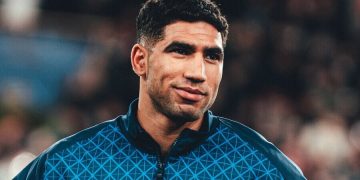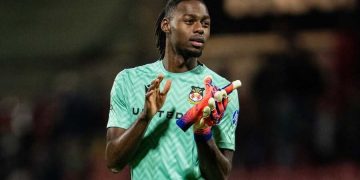When the new 48-team format begins in the United States in June 2026, Nigeria will be absent from the FIFA World Cup for the second consecutive tournament, despite boasting several quality names in the squad.
The Super Eagles suffered penalty shootout heartbreak in the CAF playoff final on Sunday to the Democratic Republic of Congo, who advance to the intercontinental playoffs scheduled for March 2026 alongside other representatives from Asia, Oceania, North America and South America.
The three-time African champions initially missed out on an automatic ticket from their group to South Africa, who finished in first place, but were given a second chance after qualifying as one of the best-ranked second-placed teams.
They secured an emphatic 4-1 victory over Gabon in the first playoff round but were ultimately defeated by DR Congo on penalties, missing out on yet another World Cup after also failing to qualify for the 2022 edition in Qatar.
In this article, we look at three major reasons why the Super Eagles missed out on a spot at next year’s World Cup tournament.
Shorunmu urges NFF to begin early AFCON planning after World Cup heartbreak
Overreliance on Victor Osimhen
Despite boasting some of the continent’s biggest names, Nigeria relied on Victor Osimhen’s individual brilliance to get results from matches. The Super Eagles delivered their best performances with the Galatasaray striker on the pitch, while results dipped in his absence.
Therefore, it was no surprise on Sunday night as Nigeria struggled to threaten the DR Congo’s defence in the second half of the clash, following Osimhen’s withdrawal at half-time due to an injury problem.
Akor Adams and Tolu Arokodare who were the other centre-forward options that were brought into the game could not deliver the pressing and work-rate that Osimhen usually brings.
Adepoju: ‘Nigeria must hit reset button after two World Cups misses’
Problems in the Nigerian Football Federation (NFF)
One major talking point before November’s CAF playoffs was the Super Eagles player’s training boycott a few days to their first round clash against Gabon over unpaid bonuses and wages dating back to 2019.
In addition to this, former head coach Jose Peseiro, who led the nation to a silver medal at the 2024 African Cup of Nations in the Ivory Coast, left his role due to financial challenges, leading to the arrival of Finidi George, who struggled for results in the early days of the qualifying campaign.
Changes are needed in the federation if Nigeria are to avoid missing out on a third consecutive World Cup in 2030.
DR Congo crush Nigeria’s World Cup hopes in brutal penalty shootout
Lack of squad depth
The lack of depth in midfield and the wide areas also contributed to Nigeria’s failure to reach next year’s World Cup. Two of the country’s first choice midfielders – Wilfried Ndidi and Alex Iwobi are 28 and above and have no quality replacements, leaving them mostly exposed in the second half of matches.
In addition to this, the likes of Ademola Lookman, Samuel Chukwueze and Moses Simon remain indispensable in the wings despite poor showings, due to the absence of quality replacements.
With just over a month until the 2025 African Cup of Nations in Morocco, Nigeria must recover from the World Cup disappointment and target a better showing than their second-placed finish in 2024.






